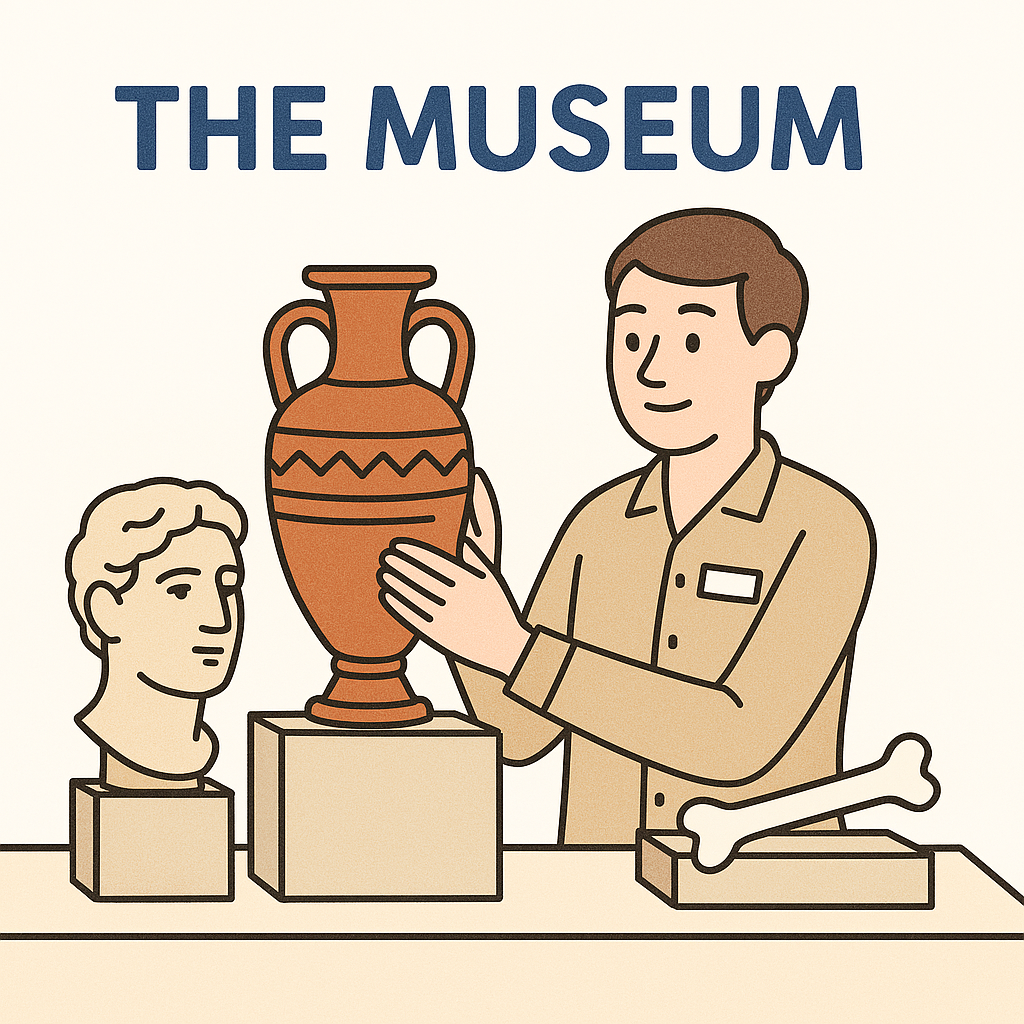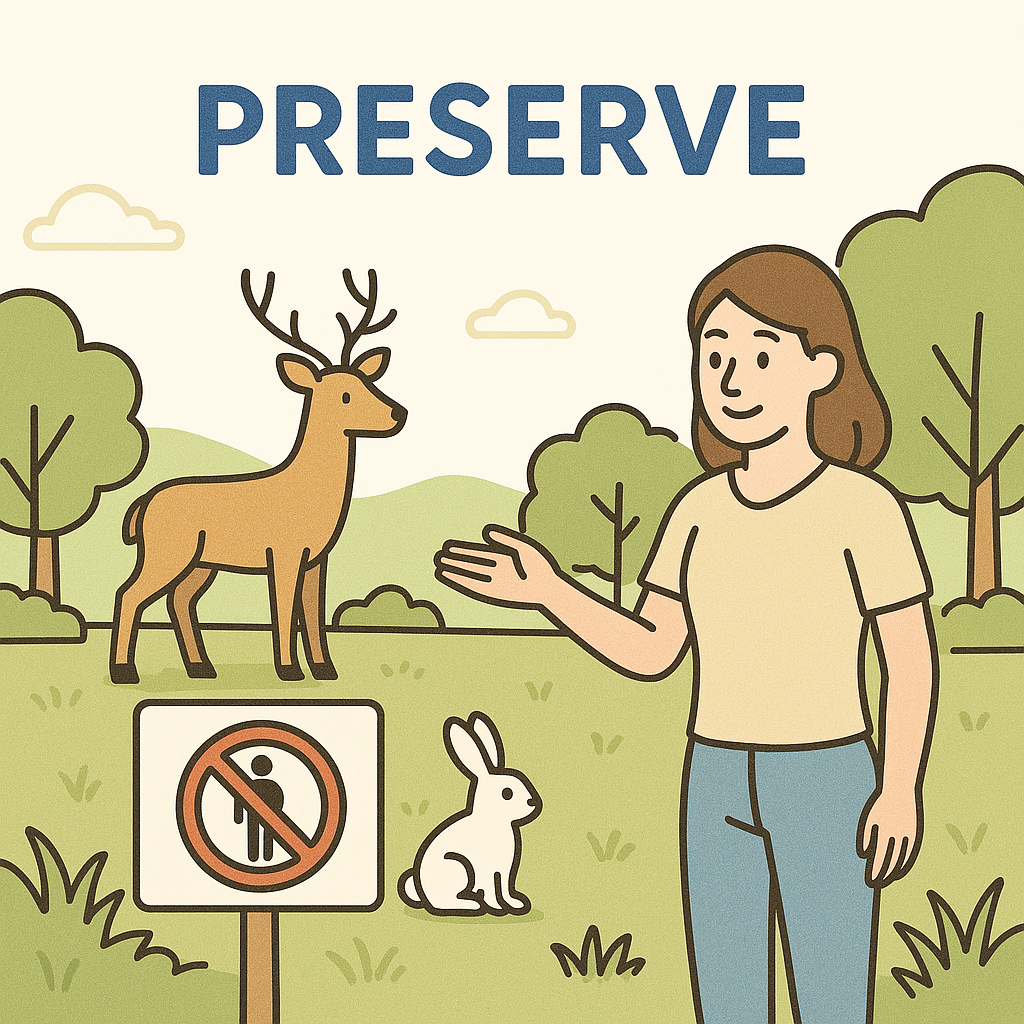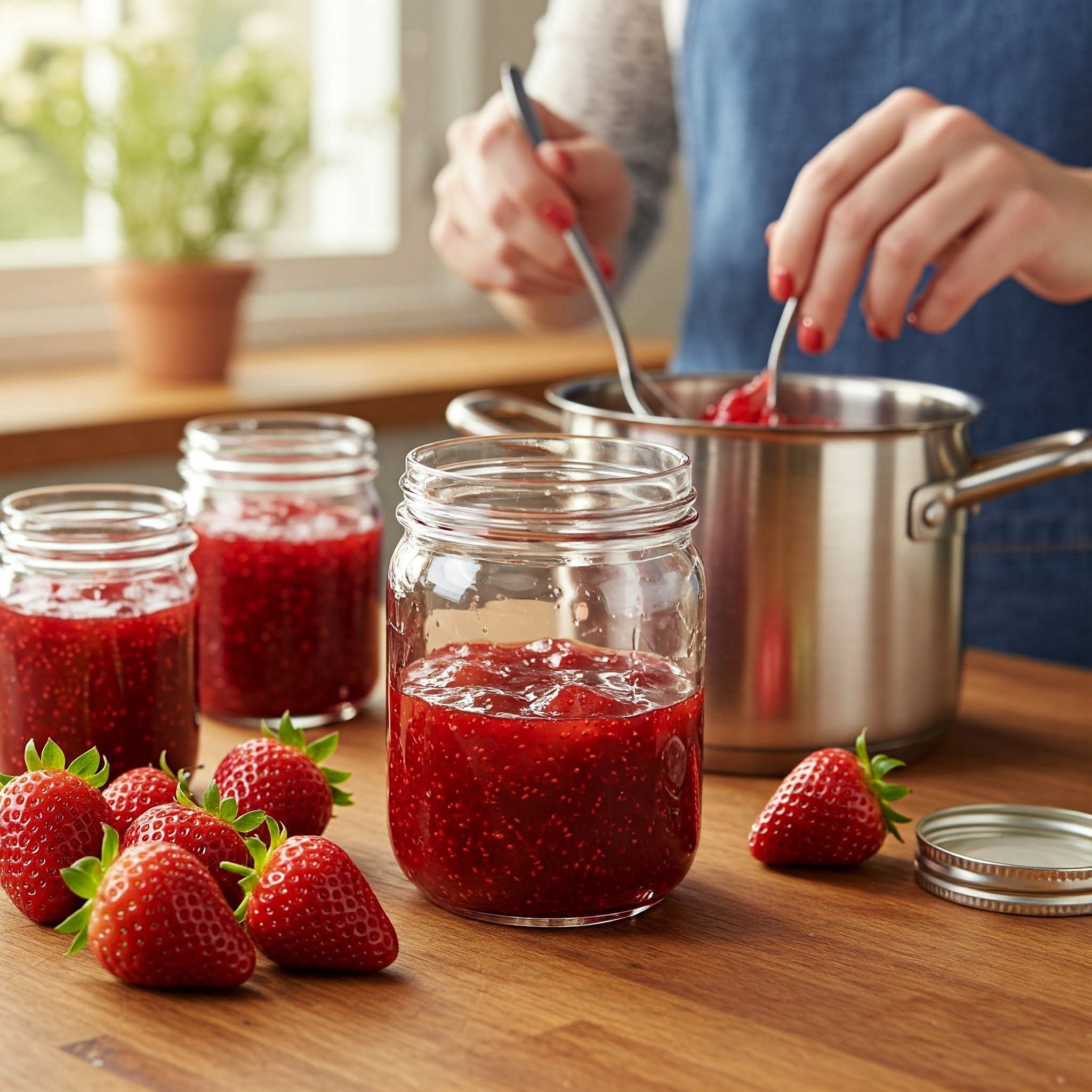Preserve
Definition
The term "preserve" describes the act of maintaining something in its original state, protecting it from harm or decay, or keeping it for future use.
Parts of Speech
- Verb
- Noun
Pronunciation
American English
- IPA Pronunciation: /prɪˈzɜrv/
- Respelling: pri-ZURV
British English
- IPA Pronunciation: /prɪˈzɜːv/
- Respelling: pri-ZURV
Etymology
The word "preserve" originates from the Latin "praeservare," meaning "to keep beforehand," formed by "prae-" (before) and "servare" (to keep). It entered Middle English via Old French "preserver" in the 14th century.
Derivatives
- Preservation (noun)
- Preservative (noun/adjective)
- Preserver (noun)
- Preserved (adjective)
- Represerve (verb)
Synonyms
- Protect
- Maintain
- Safeguard
Antonyms
- Destroy
- Neglect
- Harm
Usage
The term "preserve" is used in contexts related to conservation, food, and heritage. For example, "Efforts were made to preserve the historic site," or "The jam was made to preserve the fresh fruit."
Related Terms
- Conserve: To protect from harm or destruction.
- Protect: To keep safe from harm or danger.
- Maintain: To keep in an existing state or condition.
Detailed Definitions
Verb
- To maintain something in its original condition or state:
- Example: "The museum preserves artifacts from ancient times."
- To protect something from harm, damage, or decay:
- Example: "They preserve wildlife habitats by limiting human activities."
- To prepare and store food to prevent spoilage:
- Example: "She preserved the strawberries as jam."
Noun
- A protected area for wildlife or natural resources:
- Example: "The forest is a preserve for endangered species."
- Something prepared or maintained to last, especially food:
- Example: "The homemade fruit preserves were stored in jars."
preserve



🇨🇳 Mandarin
- 保存 (bǎocún)
- IPA: /paʊ˥˩ʈʂhʊən˥˩/
- English respelling: bao-cun
- 保护 (bǎohù)
- IPA: /paʊ˥˩xu˥˩/
- English respelling: bao-hu
🇮🇳 Hindi
- संरक्षित करना (sanrakshit karna)
- IPA: /sənɾəkʂɪt̪ kəɾnə/
- English respelling: san-rak-shit kar-na
- सहेजना (sahejna)
- IPA: /səɦed͡ʒnə/
- English respelling: sa-hej-na
🇪🇸 Spanish
- Conservar
- IPA: /konseɾˈβaɾ/
- English respelling: kon-ser-var
- Preservar
- IPA: /pɾeseɾˈβaɾ/
- English respelling: pre-ser-var
🇫🇷 French
- Conserver
- IPA: /kɔ̃seʁve/
- English respelling: kon-ser-ve
- Préserver
- IPA: /pʁezeʁve/
- English respelling: pre-zer-ve
🇸🇦 Modern Standard Arabic
- يحفظ (yahfaẓ)
- IPA: /jahfad͡z/
- English respelling: ya-hfaz
- حفظ (hifz)
- IPA: /ħifzˤ/
- English respelling: hifz
🇧🇩 Bengali
- রক্ষা করা (roksha kora)
- IPA: /ɾokʃa kɔɾa/
- English respelling: rok-sha ko-ra
- সংরক্ষণ করা (sôngrokṣaṇ kora)
- IPA: /ʂɔŋɾokʂɔn kɔɾa/
- English respelling: shon-rok-shon ko-ra
🇷🇺 Russian
- Сохранять (Soxranjat')
- IPA: /səxranʲætʲ/
- English respelling: so-khran-yat
- Защищать (Zashchishchat')
- IPA: /zəɕːɪɕːatʲ/
- English respelling: za-shchish-chat
🇵🇹 Portuguese
- Conservar
- IPA: /kõsɨɾˈvaɾ/
- English respelling: kon-sir-var
- Preservar
- IPA: /pɾɨzɨɾˈvaɾ/
- English respelling: pre-sir-var
🇮🇩 Indonesian
- Menyimpan
- IPA: /mənʲimˈpan/
- English respelling: me-nim-pan
- Melestarikan
- IPA: /məlɛstariˈkan/
- English respelling: me-les-ta-ri-kan
🇩🇪 German
- Bewahren
- IPA: /bəˈvaːrən/
- English respelling: be-va-ren
- Erhalten
- IPA: /ɛrˈhaltən/
- English respelling: er-hal-ten
🇯🇵 Japanese
- 保存する (hozon suru)
- IPA: /hozon suɾu/
- English respelling: ho-zon su-ru
- 保護する (hogo suru)
- IPA: /hoɡo suɾu/
- English respelling: ho-go su-ru
🇻🇳 Vietnamese
- Bảo tồn
- IPA: /ɓaːw˨˩ tɔ˧˩˧/
- English respelling: bao ton
- Giữ gìn
- IPA: /zi˨˩ ɣɪn˨˩˧/
- English respelling: ziu gin
🇰🇷 Korean
- 보존하다 (bojonhada)
- IPA: /boʈ͡ʂʰonhada/
- English respelling: bo-jon-ha-da
- 유지하다 (yuji-hada)
- IPA: /juʈ͡ʂiɦada/
- English respelling: yu-ji-ha-da
🇹🇷 Turkish
- Koruma
- IPA: /koɾuːma/
- English respelling: ko-ru-ma
- Saklama
- IPA: /sɑklɑmɑ/
- English respelling: sak-la-ma
🇵🇰 Urdu
- محفوظ کرنا (mehfooz karna)
- IPA: /meɦfuːz kəɾnə/
- English respelling: meh-fooz kar-na
- حفاظت کرنا (hifazat karna)
- IPA: /ɦifaːzət kəɾnə/
- English respelling: hi-fa-zat kar-na





